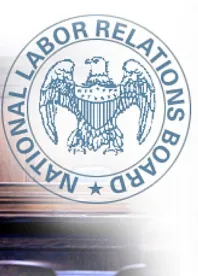In a recent split decision, the Sixth Circuit held that the National Labor Relations Board (NLRB) possessed jurisdiction to enforce provisions of the National Labor Relations Act (NLRA) against the Little River Band of Ottawa Indians—a Michigan Indian tribe—to prevent the Tribe from enforcing its new labor regulations against a casino on its land.
The controversy in NLRB v. Little River Band of Ottawa Indians Tribal Government began when the Little River Ottawa Band’s Tribal Council amended the Tribe’s Fair Employment Practices Code to allow the Band to set the terms and conditions of collective bargaining, and “prohibits strikes, work stoppage, or slowdown by the Band’s employees. Thereafter, the NLRB sought to prohibit enforcement of some parts of the amended FEPC on the grounds that they violated the NLRA. The Band’s sole objection the NLRB’s order was that the NLRB lacked jurisdiction over the Tribe in this matter. The NLRB found it had jurisdiction, even after reconsideration in light of NLRB v. Noel Canning, 134 S. Ct. 2550 (2014), and sought enforcement of its cease and desist order in the Sixth Circuit.
The Sixth Circuit granted enforcement of the order. Judge Gibbons, writing for the majority (along with Judge Merritt), began by noting that the NLRA is a statute of general applicability, is silent as to Indian Tribes, and that Chevron was inapposite because the NLRB’s jurisdiction was “predicated on its analysis of federal Indian law and policy,” not upon a statutory interpretation. Next, the court noted that Indian sovereignty is derived from federal statutes, treaties, and “inherent” sovereignty, but that “the sovereignty of Indian tribes ‘exists only at the sufferance of Congress and is subject to complete defeasance.’” Then, citing a long list of sister circuits’ precedent, the court posited that “a federal statute creating a comprehensive regulatory scheme presumptively applies to Indian tribes,” and that the Ninth Circuit’s test from the 1985 case of Donovan v. Coeur d’Alene Tribal Farm for determining exceptions to this presumption was the appropriate framework to evaluate the NLRB’s jurisdiction.
Evaluating the case under Coeur d’Alene, then, the Sixth Circuit held that the Band could not take refuge under the two applicable prongs of the Ninth Circuit’s test. First, application of the NLRA to the casino did not undermine “tribal self-governance in purely intramural matters,” because the Tribe’s asserted protection of net revenues or Tribal laws did not show such a destabilization. Second, the absence of “Indian tribes” from the NRLA’s private right of action section did not demonstrate an intent to prevent the application of the NLRA to Indian tribes, because “Congress may choose to impose an obligation on Indian tribes without subjecting them to . . . a private right of action.”
Judge McKeague issued a marked dissent, taking issue largely with the majority’s underlying reasoning and precedential evaluations. Noting the NLRB’s attempt to subject Indian tribes to the NLRA was a relatively recent innovation, the dissent argued that the application of Coeur d’Alene was not so clear cut, nor in line with more recent Supreme Court precedent. Thus, evaluating “Congress’s silence as reflective of intent to uphold tribal sovereignty,” the dissent reached the conclusion that the NLRA could not conclusively apply to the Band, absent an express Congressional intent to do so.



 />i
/>i

